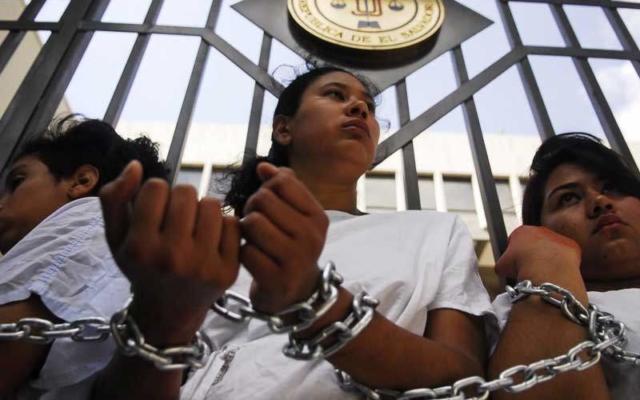Overview
Whoever you are, wherever you live, all the decisions you make about your own body should be yours.
Yet all over the world, many of us are persecuted for making our own choices and many more are prevented from making any choices at all. Governments are trying to dictate who we can kiss, who we should love, how we must dress, how we identify ourselves, when we have children, and how many we have.
Sexual and reproductive rights mean you should be able to make your own decisions about your body and:
- get accurate information about these issues
- access sexual and reproductive health services including contraception
- choose if, when and who to marry
- decide if you want to have children and how many
They also mean our lives should be free from all forms of sexual violence, including rape, female genital mutilation, forced pregnancy, forced abortion and forced sterilization.
Amnesty is campaigning to make sure we all have control over our sexual and reproductive choices.
In 2013, 22 year old Beatriz was denied an abortion by the authorities in El Salvador. Beatriz suffered from a number of severe illnesses which meant that continuing with her pregnancy posed a serious threat to her life and health. The fetus was unlikely to survive beyond birth. After months of pressure from activists in El Salvador and around the world, the Salvadoran government finally allowed her an early caesarean section: “Without your support I wouldn’t have been able to get through it. I hope my example serves so that other women won’t have to go through what I suffered.”

The problem
New threats to equality, and our lives
Many of the recent advances made by brave activists are now under threat.
- In December 2013, India’s Supreme Court ruled that same-sex relations between consenting adults would remain a criminal offence.
- In January 2014, the deeply oppressive Same Sex Marriage (Prohibition) Act became law in Nigeria.
- In January 2014, a new abortion law came into effect in Ireland – the Protection of Life During Pregnancy Act – which continues to criminalize and punish abortion with a 14 year prison sentence.
Many groups are putting pressure on governments, the UN and other international and regional bodies to limit sexual and reproductive rights. This is driven by well-funded, organized interest groups, including powerful religious institutions.
At the highest levels, some governments are listening to these groups and questioning sexual and reproductive rights and gender equality, or branding the principle of “human rights for all” as a Western concept.
What’s clear is that our rights to express our sexuality and make decisions over our own bodies are being challenged.
Key Facts
The issue in detail
Discrimination
There are many barriers to sexual and reproductive rights, including obstacles to access health services, information and education. But underlying these problems is discrimination.
Women and girls and people from marginalized groups, such as gay men, lesbian women and trans people or people from so called “lower” castes, people living in poverty, or minorities, risk a huge amount when they try to exercise choice.
These barriers are often more extreme if you are from more than one of these groups.
Kopila is a 32 year old woman living in Nepal’s Kailali district. She never went to school and was married at 17 years old. She had her first child one year later, followed by three more. While pregnant and soon after giving birth, she had to work in the fields and carry heavy loads such as wood. This and other gender discrimination contributed to Kopila experiencing uterine prolapse – a painful condition in which the uterus starts to slip into the vagina – when she was 24 years old. She has only been to the doctors once as it is Kopila’s husband who decides when she can see a doctor.
Unfortunately for Kopila and millions of others like her, far from challenging inequality and discrimination, governments often reinforce it. They force people to conform to what they consider to be “normal” when it comes to sexuality, reproduction and parenthood. These harmful stereotypes are often justified on grounds of culture, tradition or religion.
Control over sexual and reproductive choices often ends up in the hands of others – husbands, in-laws, family members or religious groups. The consequences are devastating.
Amnesty is calling for
- Governments must stop using criminal law to control people’s sexuality and reproduction.
- People should be empowered to make their own decisions about their bodies and they live their lives without interference from others.
- Governments should make sure that sexual and reproductive health services, education and information are available and easy to access.
- Countries should prohibit all forms of discrimination and violence.

